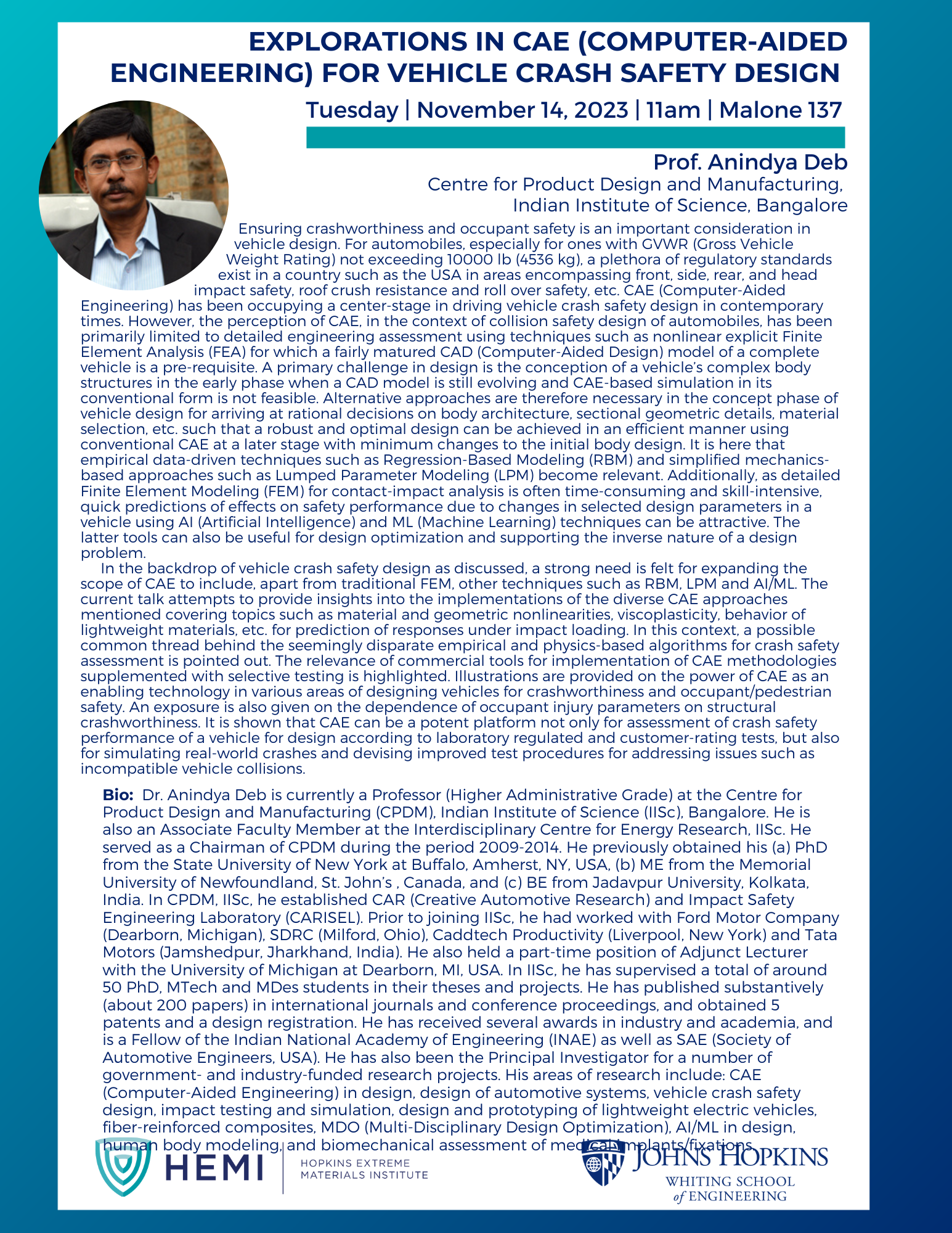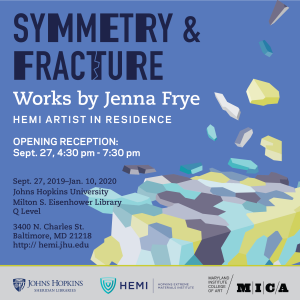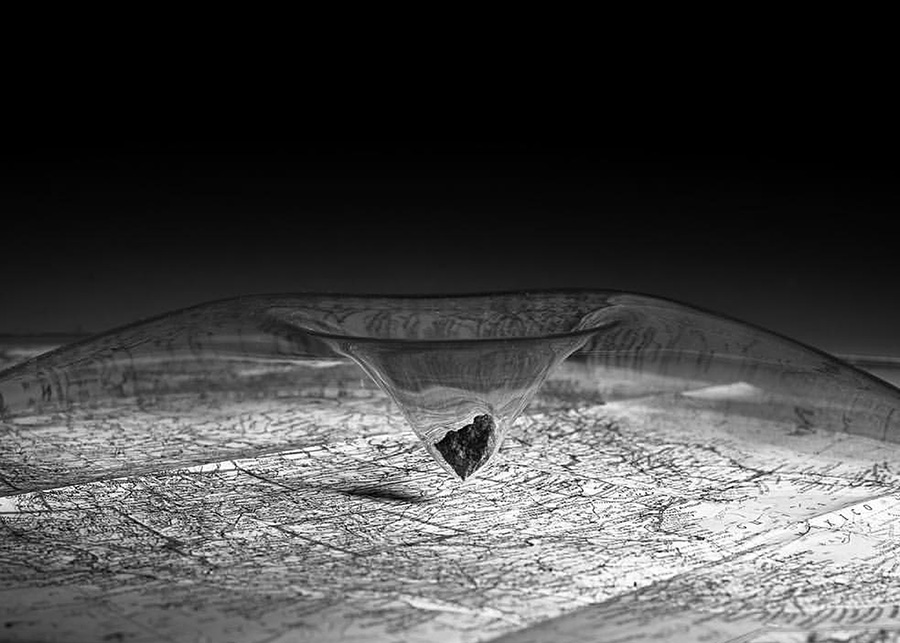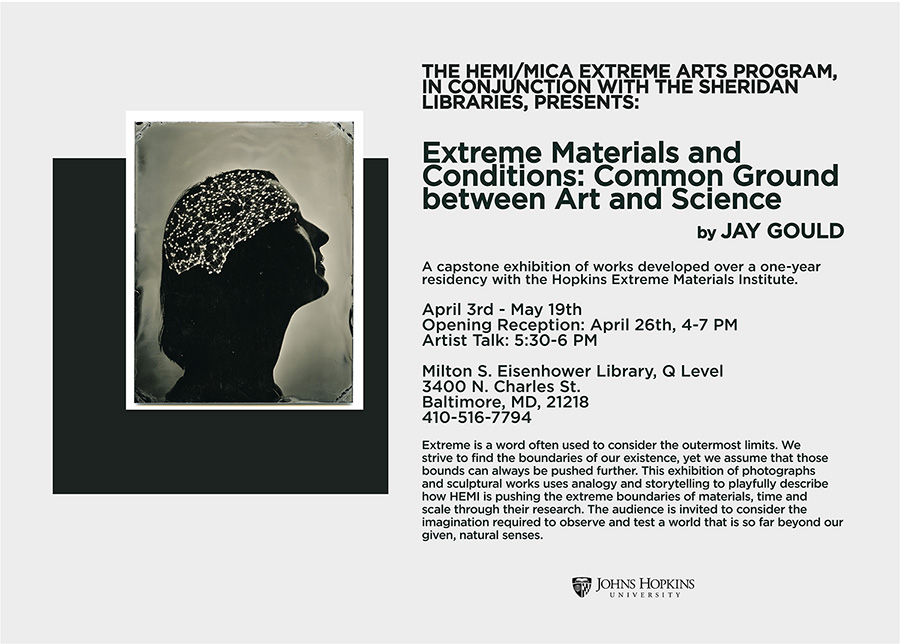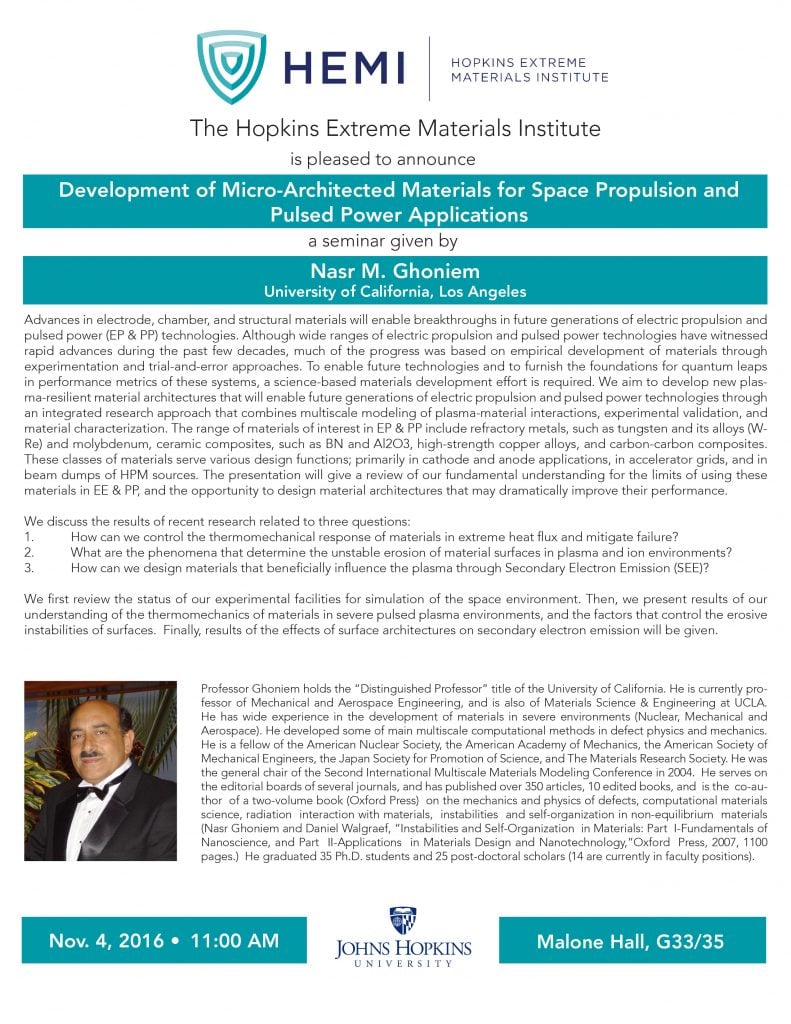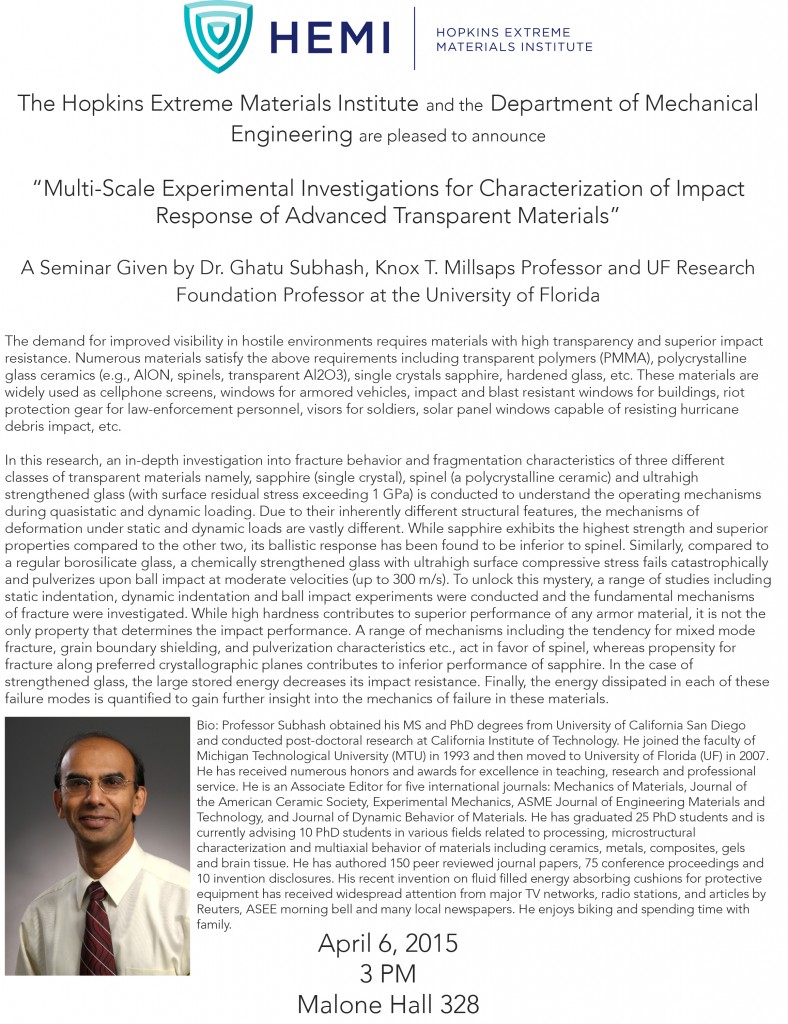Please join us for a seminar with Prof. Anindya Deb from the Centre for Product Design and Manufacturing at the Indian Institute of Science, Bangalore. The seminar is titled “Explorations in CAE (Computer-Aided Engineering) for Vehicle Crash Safety Design.”
The seminar will begin at 11:00 AM on Tuesday, Nov. 14 in Malone Hall 137.
Bio: Dr. Anindya Deb is currently a Professor (Higher Administrative Grade) at the Centre for Product Design and Manufacturing (CPDM), Indian Institute of Science (IISc), Bangalore. He is also an Associate Faculty Member at the Interdisciplinary Centre for Energy Research, IISc. He served as a Chairman of CPDM during the period 2009-2014. He previously obtained his (a) PhD from the State University of New York at Buffalo, Amherst, NY, USA, (b) ME from the Memorial University of Newfoundland, St. John’s , Canada, and (c) BE from Jadavpur University, Kolkata, India. In CPDM, IISc, he established CAR (Creative Automotive Research) and Impact Safety Engineering Laboratory (CARISEL). Prior to joining IISc, he had worked with Ford Motor Company (Dearborn, Michigan), SDRC (Milford, Ohio), Caddtech Productivity (Liverpool, New York) and Tata Motors (Jamshedpur, Jharkhand, India). He also held a part-time position of Adjunct Lecturer with the University of Michigan at Dearborn, MI, USA. In IISc, he has supervised a total of around 50 PhD, MTech and MDes students in their theses and projects. He has published substantively (about 200 papers) in international journals and conference proceedings, and obtained 5 patents and a design registration. He has received several awards in industry and academia, and is a Fellow of the Indian National Academy of Engineering (INAE) as well as SAE (Society of Automotive Engineers, USA). He has also been the Principal Investigator for a number of government- and industry-funded research projects. His areas of research include: CAE (Computer-Aided Engineering) in design, design of automotive systems, vehicle crash safety design, impact testing and simulation, design and prototyping of lightweight electric vehicles, fiber-reinforced composites, MDO (Multi-Disciplinary Design Optimization), AI/ML in design, human body modeling, and biomechanical assessment of medical implants/fixations.



